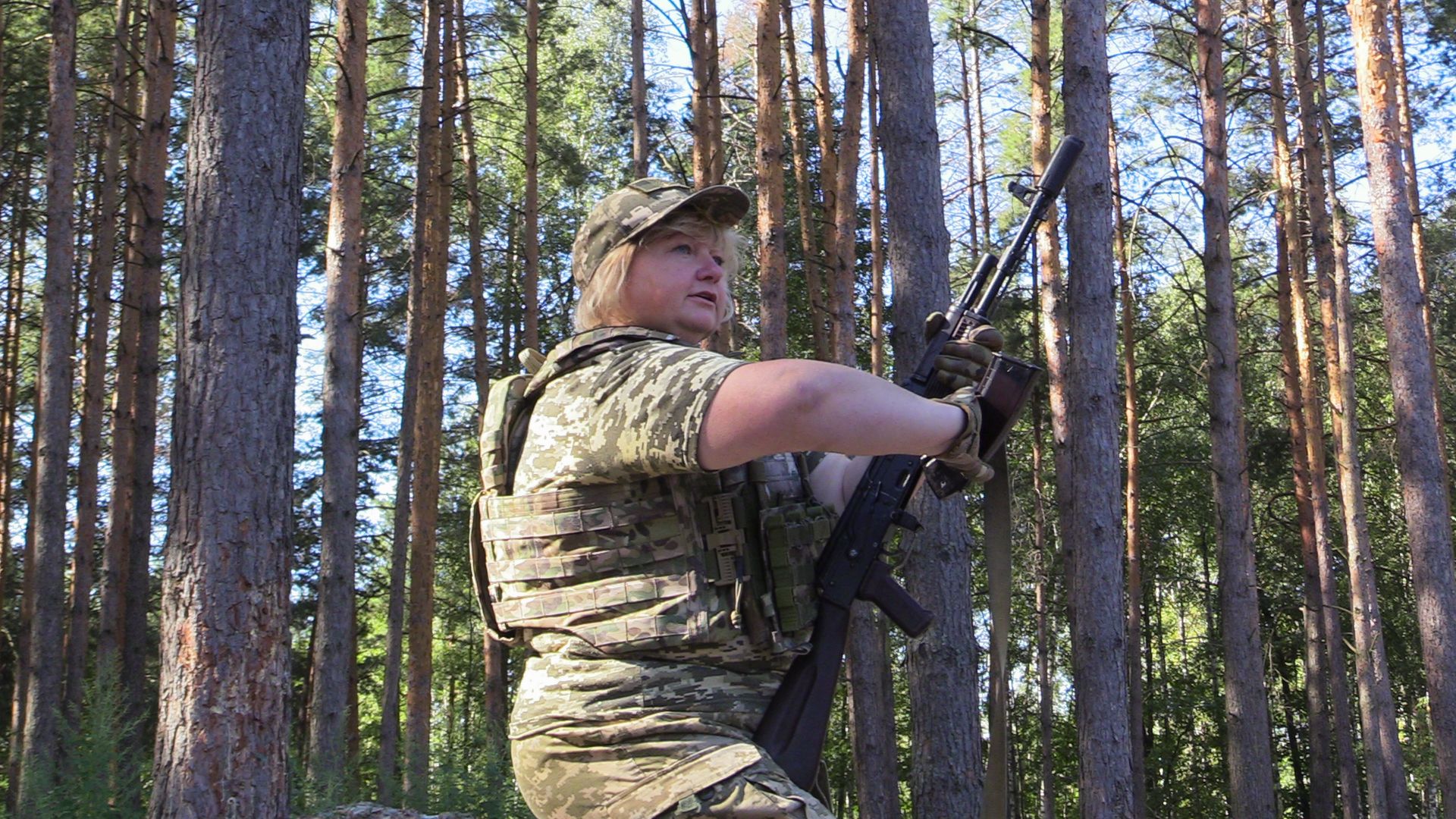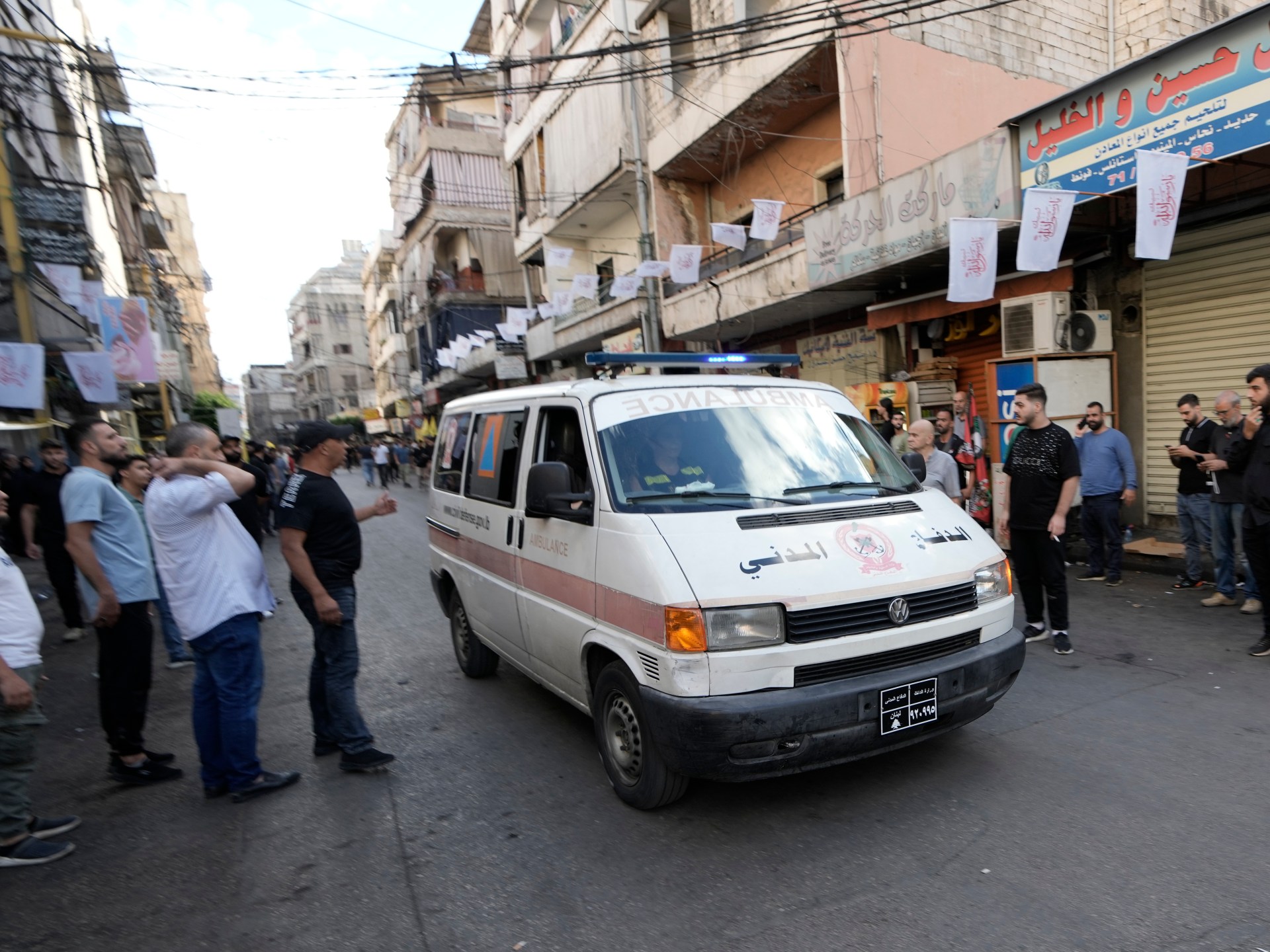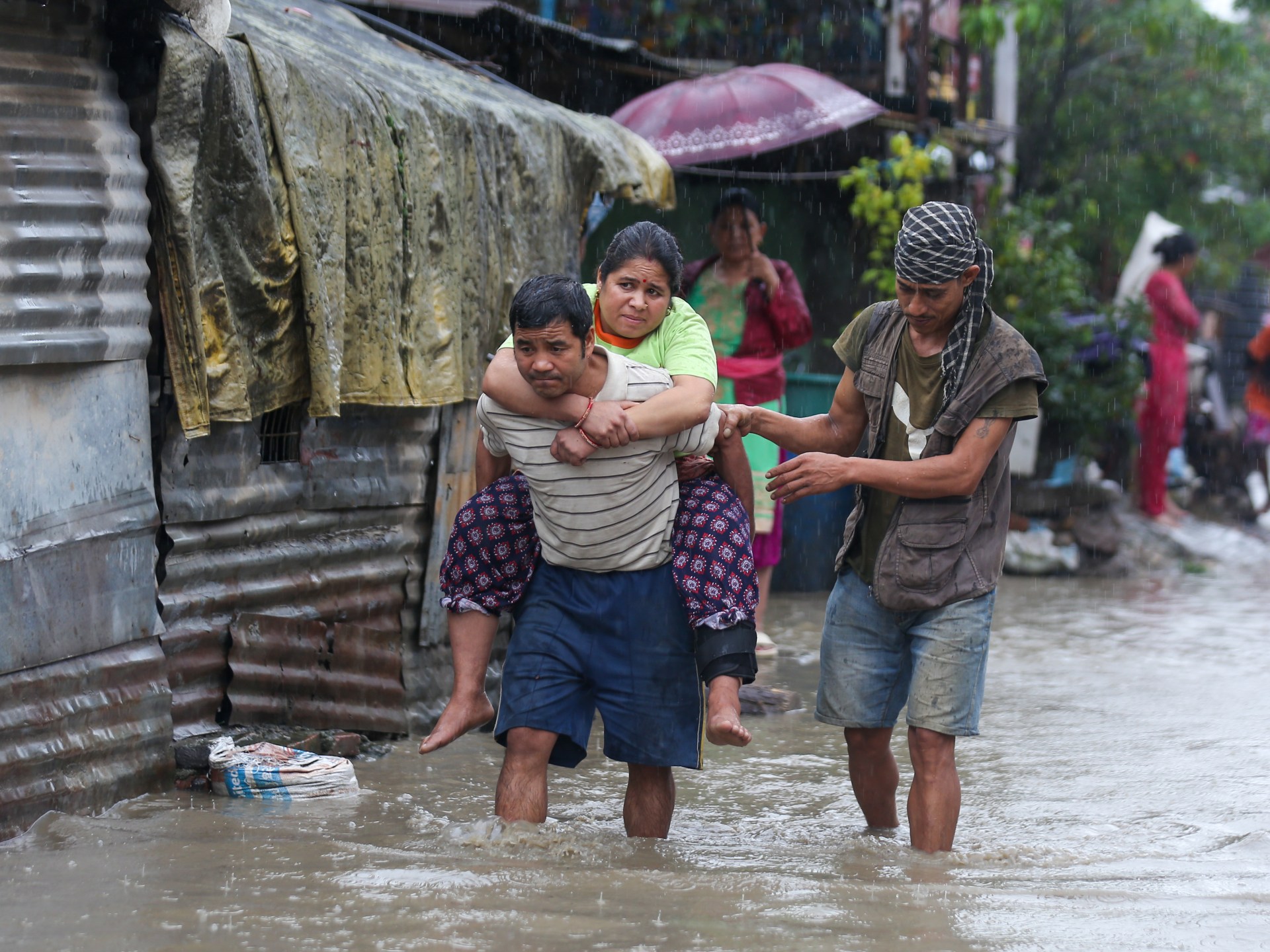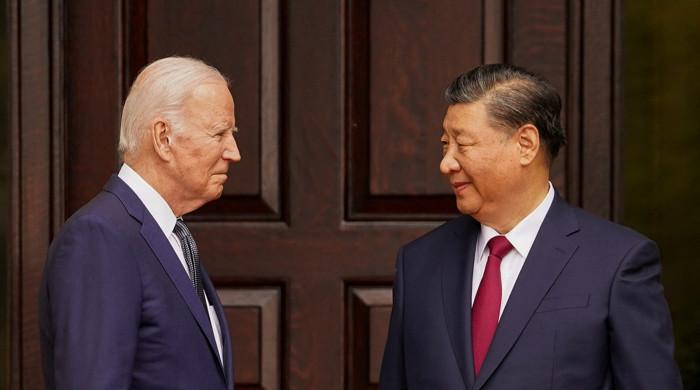Bucha, Ukraine – Valentyna beams as she talks about her new calling: “Bucha Witch.”
That is the unofficial name of nearly 100 women aged 19 to 64 who volunteer for part-time military service in air defence units in the suburban community northwest of kyiv.
Each “Bucha witch” is trained to handle assault rifles and machine guns to shoot down the Russian drones that fly over their homes several times a month.
Weapons are flying towards kyiv to blow up buildings, prompting Ukrainian air defence forces to launch expensive Western-supplied missiles at them.
The buzzing swarms echo the route of Russian ground forces in early 2022, when they occupied most of the Bucha district for 33 days and committed now-well-documented atrocities that captured the world's attention.
According to Ukrainian officials and international war crimes observers, Russian fighters killed hundreds of civilians and robbed, raped and tortured thousands more.
Decimated by killings, migration and mobilization, Bucha residents described a community reeling from collective PTSD and a desire for revenge.
Since April, several women have signed up to become “Bucha Witches” to find solace and fulfillment.
“My mother is happy that I found myself. And I found myself here. I found friends, colleagues, brothers and sisters,” Valentyna, a 51-year-old mother of three, told Al Jazeera.
She and her fellow soldiers interviewed for this story withheld their surnames and personal details in accordance with military regulations.
“We are all kindred spirits. We have one heart for everyone. We have one purpose: to accelerate victory and invest in it in any way we can,” Valentyna said seriously.
Dressed in camouflage and with her blond hair peeking out from under a baseball cap, she held an assault rifle and a bulletproof vest covered in dust, dried leaves and pine needles.
Valentyna and four other women spent several hours at a sunlit military firing range, where they built shelters and pits for their vehicles.
Today, women are bussed to the range to learn how to load weapons, shoot and coordinate attacks in groups of two and three.
The place is called “Mordor” and Russian soldiers in Ukraine are often called “orcs”. Mordor is a realm in the fictional world of JRR Tolkien’s Middle-earth fantasy series, while orcs are evil beings.
“When you put on a uniform, you are neither a woman nor a man. You are a defender.”
On a recent Saturday, the women and their instructors “raided” a shelter covered with gray plastic and pine logs that smelled like Christmas trees.
The male instructors acted ruthlessly, sometimes cursing and yelling things like “Get your ass out of the tree!” or “I shot you, you’re fucking dead!”
Their commander has no gender distinction.
“When you put on a uniform, you are neither a woman nor a man. You are a defender,” Andriy Verlaty, a burly, raspy-voiced colonel, told Al Jazeera.
“But there are women who can surpass any man in the performance of military duties, in being responsible, pedantic.
“They even manage to wax their assault rifles,” he said, like a stern father who admits he is proud of his son.
Two doors down from his office, in a dusty warehouse, lay the twisted pieces of one of his trophies: a downed Iranian-made Shahed drone.

Loaded with 50 kg (110 lb) of explosives, the Shaheds and their modified Russian-made siblings, the Gerans, move in flocks of dozens, like crows, at 150 kilometres per hour (93 miles per hour).
Filling the air with the ear-piercing screech of their engines, they are easy to spot but hard to shoot down.
“Their tactics are constantly evolving,” Vladyslav Korg, who serves in an air defence unit in Bucha, told Al Jazeera.
Each Russian drone has a GPS tracker and transmits live video to its operator.
And when a Ukrainian air defense unit starts firing, one of the drones — a “spy” drone without bombs — flies toward it and turns on a spotlight so its operators can scare away the swarm, Korg said.
Before joining the air defense, every Bucha witch must go through weeks of training.
And it's not a picnic.
“I thought I couldn’t bear it,” Valentyna said. “But the body can bear it. And when the strength is gone, the spirit kicks in.”
She was panting heavily as she did push-ups with a bulletproof vest on.
Next to her was a newcomer: Kateryna, the owner of an art gallery in kyiv.
“I was worried. I had never touched a gun,” she said after the training. “But now I’m starting to understand things a little bit.”
The women joked that the exercises were a “free outdoor gym.”
But they provide much more than the endorphins of training.
'It is better to participate'
On the first day of the full-scale invasion of Moscow, another debutante, Natalya, saw Russian soldiers emerging from planes and helicopters at Hostomel airport near Bucha.
Several hours later, in panic, she fled with her daughters and nieces while her husband and son stayed behind to serve in the army.
Today, she is his equal.
“It's better to participate than to watch from the sidelines,” Natalya, a pastry chef who works 9 to 5, told Al Jazeera.
Training is also a form of collective psychotherapy.
The village of Valentyna, near Bucha, was not occupied, but her family survived near-death horrors.
One day, a deafening bombardment forced them to take refuge in the freezing basement. The walls were shaking and fragments of stucco were constantly falling from the ceiling.
The bombardment was so loud that she could not hear the words of her frightened son, whom she hugged while shouting in his ear.
As they headed west in a packed car, Russian soldiers flagged it down and ordered the family to roll down their windows.
One of the soldiers touched her son's head with the barrel of his gun, she said.
“It was a huge shock and fear, a starting point” that eventually led her to the female fighter group, Valentyna said.
Russia withdrew from Bucha at the end of March 2022. Valentyna returned home to find that the three cats she had to leave behind had grouped together with seven other felines.
They shared all the food they could get equally, without fighting or trying to dominate others.
“I felt the same unity with the neighbors, with the community,” Valentyna said. “We became different. We all became different.”
He feels guilty when he sees Russian drones from his window.
“They are scary, very scary,” Valentyna said knowingly. Her older sons assemble and modernize Ukrainian drones.
She left her job as a medic to learn how to tactically care for combat casualties.
Mentally, she never separates herself from her team.
“Because when you're home, the war isn't over and you're always here, here with your thoughts,” she said as a yellow school bus took her and four other women out of “Mordor.”












